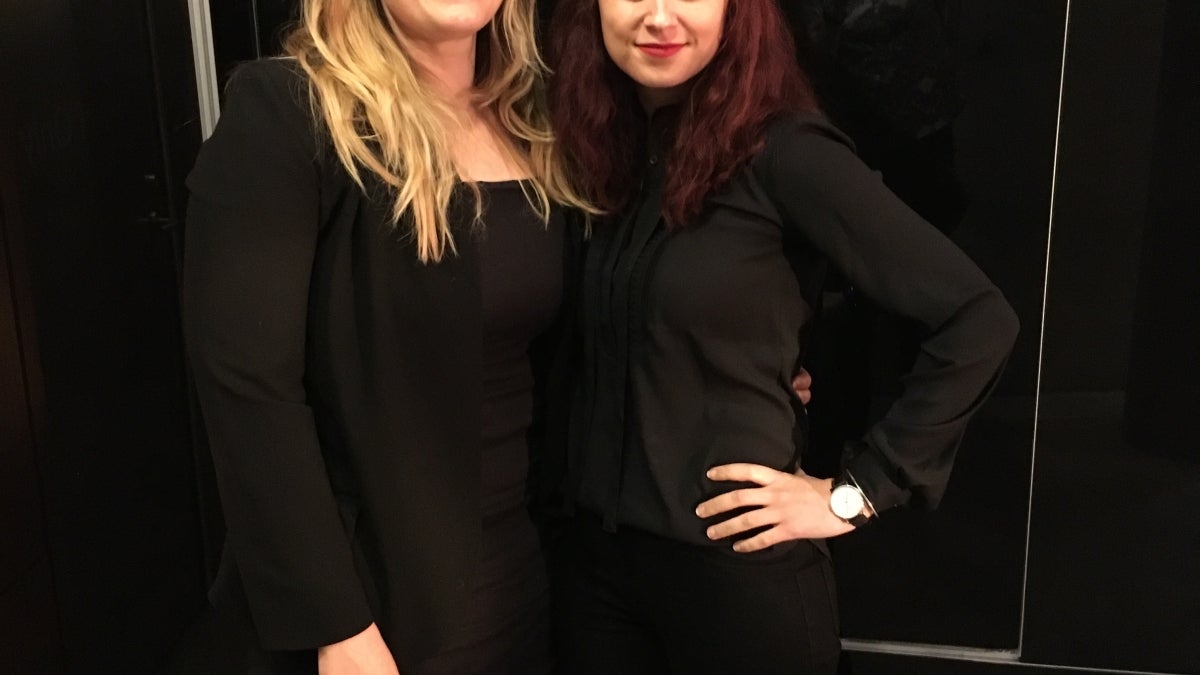Jealous feelings can act as a tool to strengthen friendships

Psychologists (and best friends) Jaimie Arona Krems and Keelah Williams led a study that examined how jealousy affects friendships. They both earned their doctorates at Arizona State University. Image courtesy of Keelah Williams, Hamilton College.
Having friends is healthy. Not having friends is associated with a greater risk of dying from heart disease and with becoming sick from viruses.
And feeling a little green might not be a bad thing when it comes to friendships, especially during a pandemic.
A new study from Arizona State University, Oklahoma State University and Hamilton College has found feelings of jealousy can be a useful tool in maintaining friendships. Feelings of jealousy were related to the value of the friendship and also motivated behaviors that maintain friendships. The work was published online in the Journal of Personality and Social Psychology on Aug. 11.
“Friends aren’t just fun. They are an important resource, especially in our current situation with ongoing COVID-19 outbreaks. Friends give support during conflict, buffer against loneliness, and can even provide life-sustaining resources when we need them,” said Jaimie Arona Krems, who earned her doctorate at Arizona State University and is now an assistant professor of psychology at Oklahoma State University. “We wanted to understand how we keep friendships, and we found feelings of jealousy can act like a tool for maintaining friendships.”
The third wheel
Not all threats to friendships evoked jealousy. If a best friend moved away, people felt sadness and anger more than jealousy. But when friendships were threatened by another person – such as a new romantic partner or new friend at work – jealousy was the dominant feeling.
The intensity of jealous feelings varied by how likely the third-party threat was to replace someone in the friendship. A best friend gaining a romantic partner elicited less jealous feelings than them gaining a potential new friend.
“The third party threats to a friendship were not just related to a best friend spending time away from us: It mattered whether the person they were spending time with could replace us as a friend. We found people felt less jealous about their best friend spending the same amount of time with a new romantic partner than a new acquaintance, which means what makes us most jealous of is the possibility that we might be replaced,” said Douglas Kenrick, who is a President’s Professor of psychology at ASU and author on the paper.
Guarding friendships
Feelings of jealousy over being replaced were associated with behaviors that could overcome the third-party threats, like trying to monopolize a best friend’s time and manipulate their emotions.
“Together, these behaviors are called ‘friend guarding’, and they occur across cultures and also in nonhuman animals. Female wild horses are known to bite and kick other female horses,” said Keelah Williams, assistant professor of psychology at Hamilton College who earned her doctorate and law degree at ASU.
Not all friend-guarding behaviors focus on trying to control a best friend; jealousy also led people to commit to being a better friend.
“Getting jealous can sometimes be a signal that a friendship is threatened, and this signal can help us jump into action to invest in a friendship that we might have been neglecting,” said Athena Aktipis, assistant professor of psychology at ASU and author on the paper.
The study was partially funded by a Philanthropic Education Organization International Scholar Award that supported Krems.
More Science and technology

ASU graduate student researching interplay between family dynamics, ADHD
The symptoms of attention deficit hyperactivity disorder (ADHD) — which include daydreaming, making careless mistakes or taking…

Will this antibiotic work? ASU scientists develop rapid bacterial tests
Bacteria multiply at an astonishing rate, sometimes doubling in number in under four minutes. Imagine a doctor faced with a…

ASU researcher part of team discovering ways to fight drug-resistant bacteria
A new study published in the Science Advances journal featuring Arizona State University researchers has found…